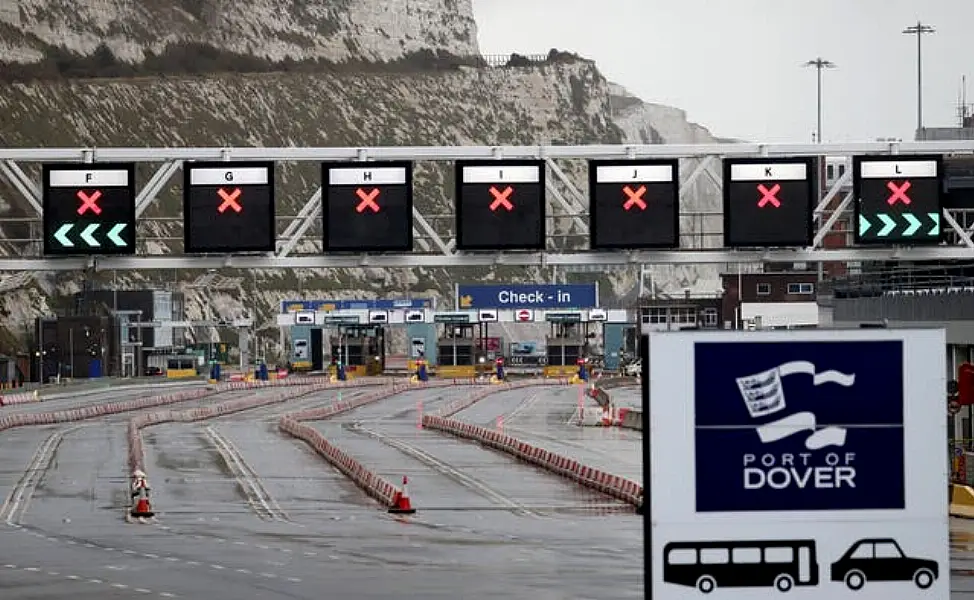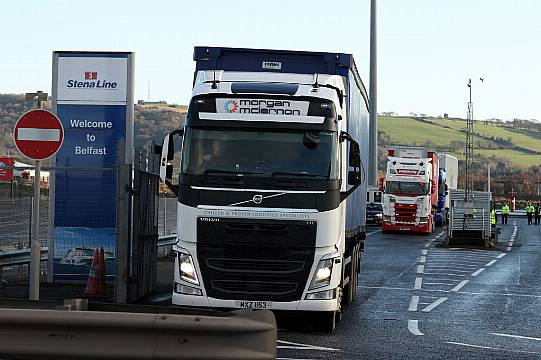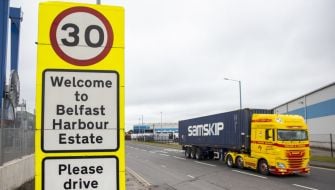Hauliers have warned they are being “overwhelmed” by red tape due to new checks on deliveries to Northern Ireland from the rest of the UK following Brexit.
The industry body Logistics UK said deliveries were being delayed as lorries arrived in Belfast with incomplete paperwork following the end of the transition period on December 31st.
The organisation’s Northern Ireland policy manager Seamus Leheny said the problems were a direct result of UK prime minister Boris Johnson’s Brexit divorce settlement with Brussels.
The warning came as Debenhams announced it was suspending online sales to Ireland due to “uncertainty” about the new rules which mean some products are now subject to tariffs.
Other major retailers were reported to be considering similar steps.
In Scotland, seafood producers said that exporting to the EU had become “very challenging” as a result of the changes.
Meanwhile, police in Kent disclosed they have handed out more than £32,000 (€35,000) in fines to lorry drivers since New Year’s Day.
They included penalties for entering the county without the required permit and jumping the queues at the ferry ports.
Giving evidence to the Stormont agriculture committee, Mr Leheny said the difficulties hauliers were facing had arisen from Mr Johnson’s decision to abandon Theresa May’s Northern Ireland “backstop”.
In order to avoid a hard border with the Republic, Northern Ireland has remained in the EU single market but that has meant checks on goods arriving from Great Britain.
“People in Great Britain have not been aware of the volume of administration that this would involve,” Mr Leheny told the committee.
“You cannot simply wish away friction and administration when you implement customs controls anywhere in the world.”

He added: “This is a result of the UK government rejecting [the backstop] and it was entirely its decision.”
Meanwhile, Scotland Food and Drink chief executive James Withers said there had been “major problems” for seafood exporters selling to the EU.
“We have warned for months about the lack of preparation time for everyone involved and these problems sadly come as little surprise,” he said.
“There are now a lot of bureaucratic steps to navigate in getting product from Scotland into France and small delays at different points can quickly cause major problems for a set of products whose value relies on getting to European markets within 24 hours.”
The UK government earlier said they were aware of a “small number” of issues around seafood due to information not being entered correctly.
A spokeswoman said: “We are contacting exporters, their representatives and transporters to help them understand the requirements and we will work closely with them to keep their goods moving.”
In Kent, the feared queues of lorries along the motorways have not so far materialised but traffic volumes are expected to pick up as January goes on.
Despite handing out 113 fines as of Wednesday morning, police said a high percentage of drivers heading to the Eurotunnel and Dover were arriving with the right documentation.
Assistant Chief Constable Claire Nix said the volume of lorries heading to the border was expected to increase “significantly” over the coming weeks so it remained important that companies knew what was required.







